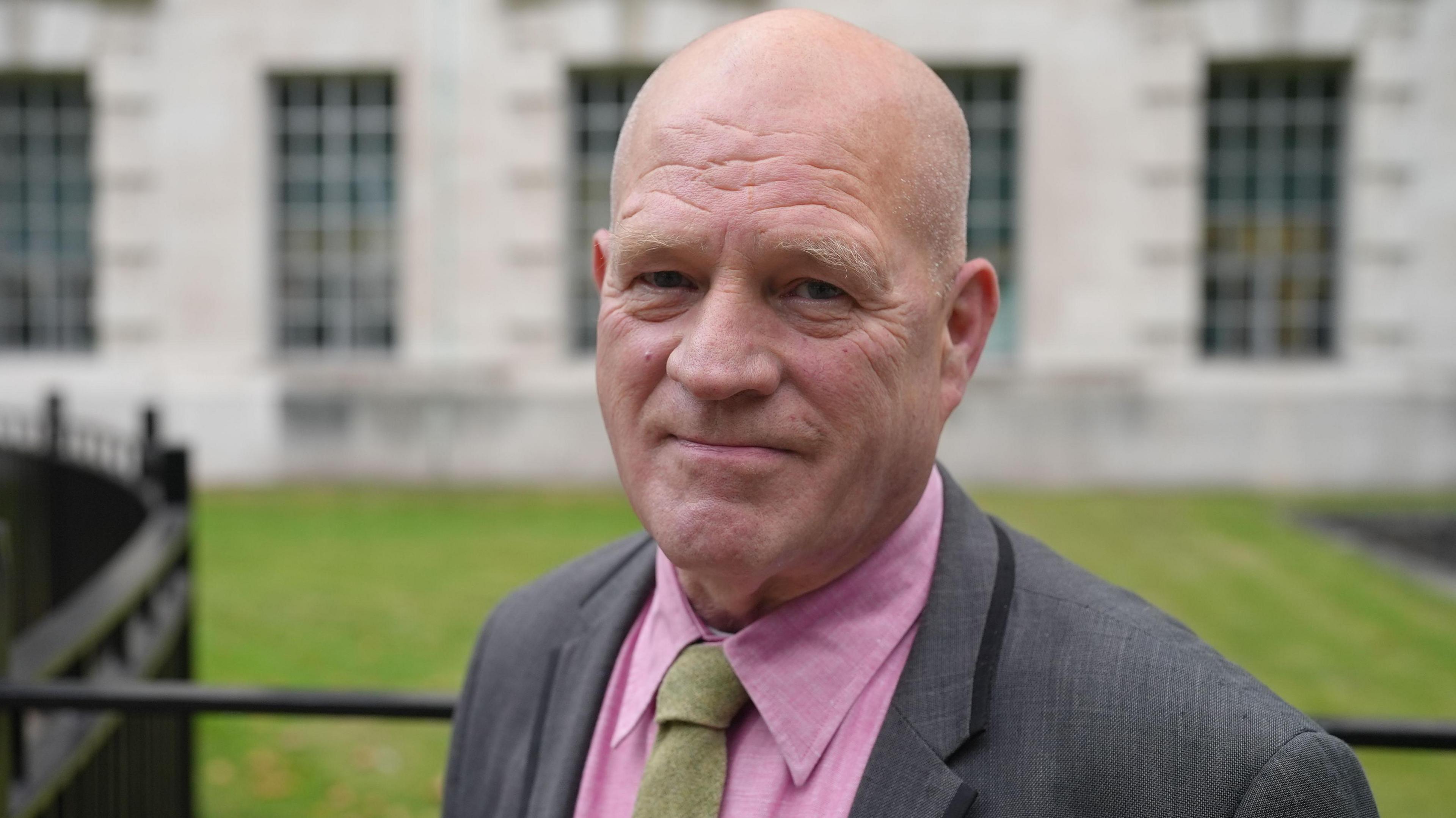'I had to make up girlfriends while in the Navy'
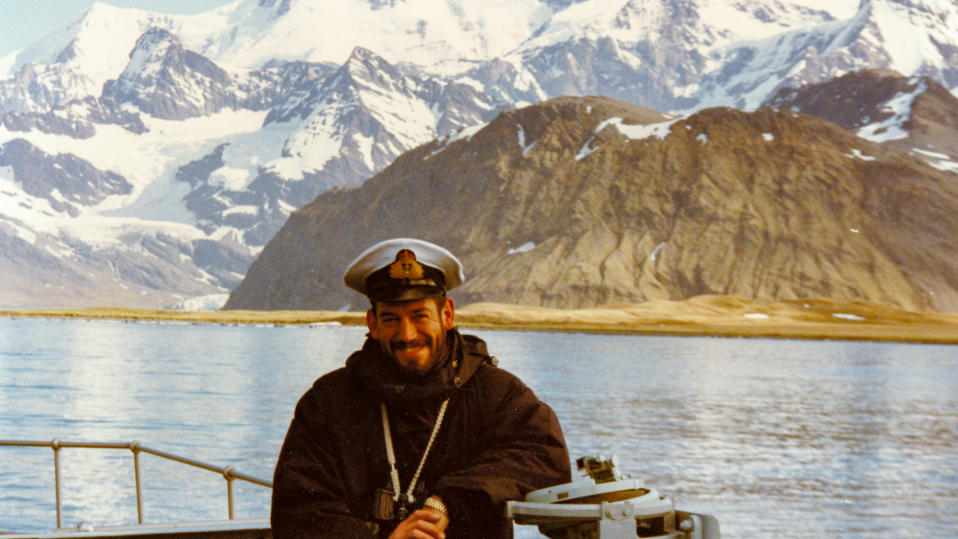
Commander Woods on HMS Lancaster at South Georgia Island in the South Atlantic Ocean in 1996
- Published
A former Commander in the Royal Navy has spoken about how he had to hide his sexuality during the military's "gay ban", as a memorial is unveiled at the National Memorial Arboretum in honour of him and his LGBT+ colleagues.
"I had to make up girlfriends and take female friends to functions just to have a cover story in place", said Roly Woods, who served in the Navy for 46 years.
Commander Woods, who lives in Hove, East Sussex, joined the Navy in 1978 and had to hide his sexuality until the Armed Forces' ban on homosexuality was lifted in January 2000.
A bronze sculpture, named An Opened Letter, is being unveiled by King Charles III at the UK's national remembrance site in Staffordshire on Monday.
The sculpture is the latest work of charity Fighting With Pride, which campaigns to give voice to veterans impacted by the ban.
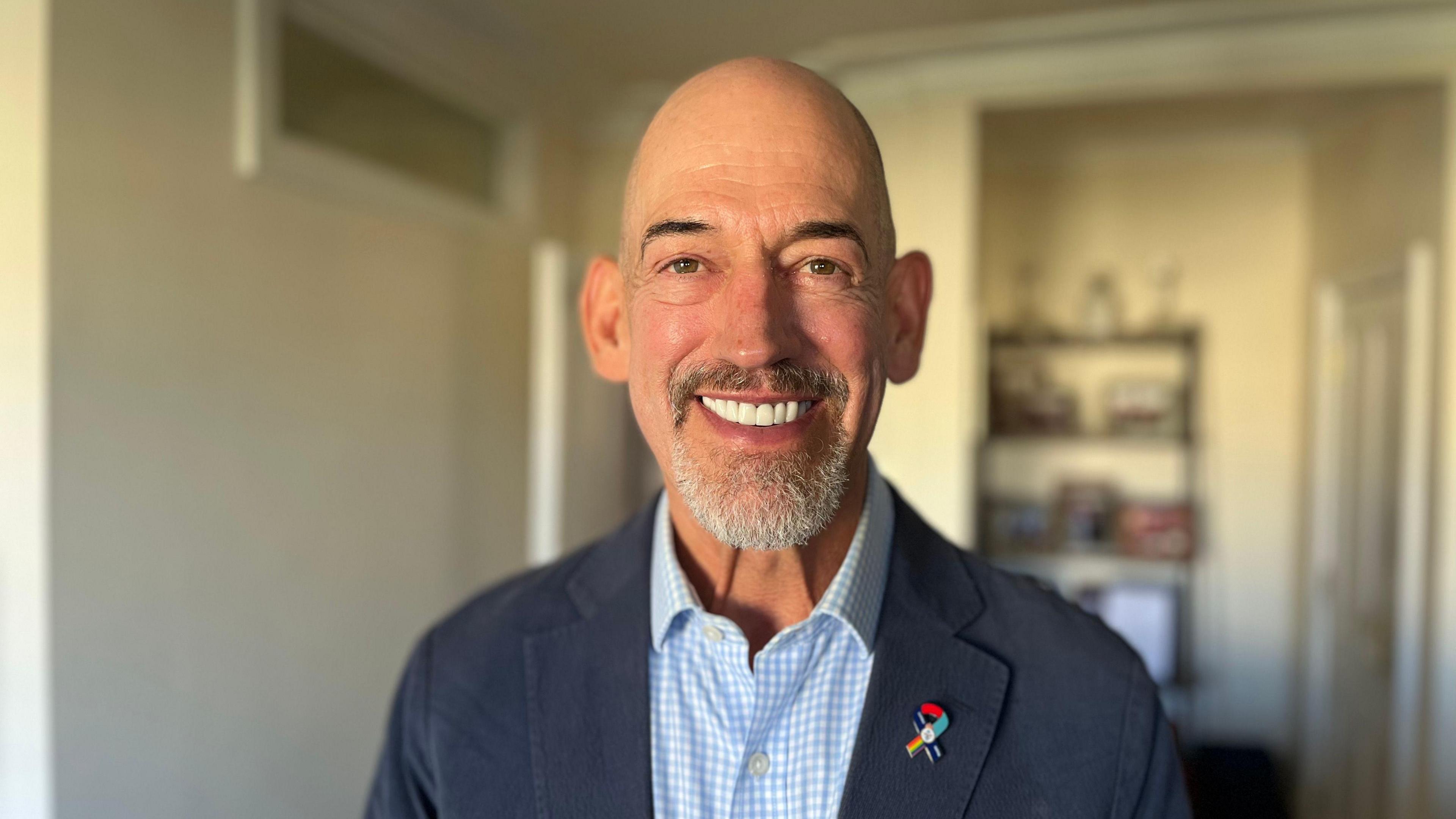
Commander Roly Woods is a Navy veteran and one of the people behind a new memorial for Armed Forces personnel from the LGBTQ+ community
"Even when I was in Exeter with my then partner, I would have two different routes for nights out," said Commander Woods.
"When my Navy pals came, I had my straight route. When I was out with gay friends it was another route. I just had to hope the two groups never met.
"One of the biggest issues was you couldn't be out to your close military friends - not because they would out you to the authorities, but because you didn't want to put them in the position of having to decide.
"If they didn't report you they'd be culpable themselves. It was a real negative and toxic atmosphere to work in."
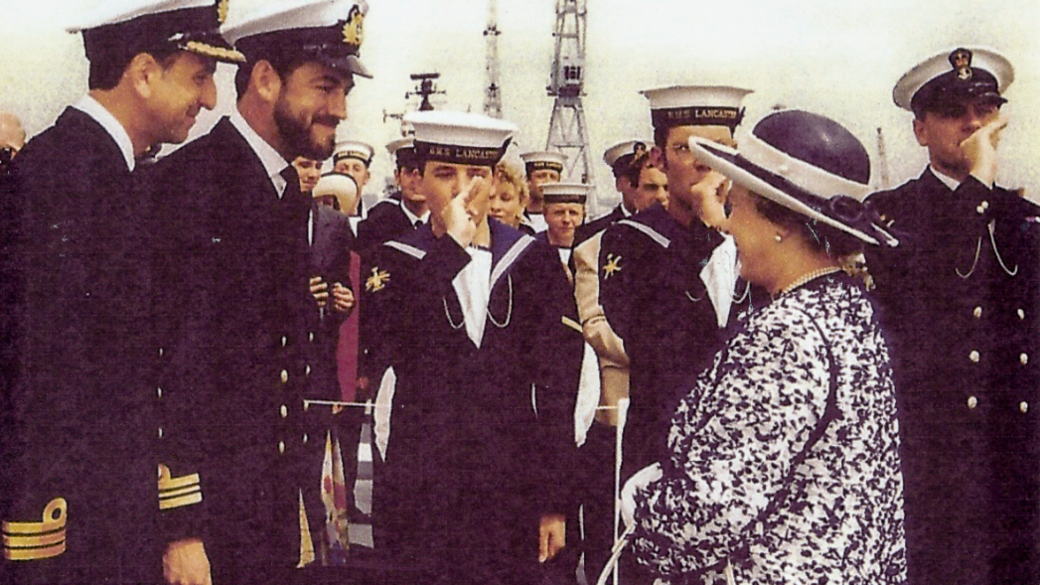
Commander Woods, second from left, welcoming Queen Elizabeth II on board HMS Lancaster in Portsmouth in 1997
Commander Woods, 67, is part of the Fighting With Pride charity, which was started by veterans from the LGBT+ community in 2020.
Part of its work is helping make LGBT+ veterans aware of the Financial Recognition Scheme, a payment for those who were negatively affected by the ban on openly gay and bisexual people serving in the military.
Before the ban ended, people were subjected to interrogations, medical examinations, dismissal, loss of medals and other severe consequences including imprisonment.
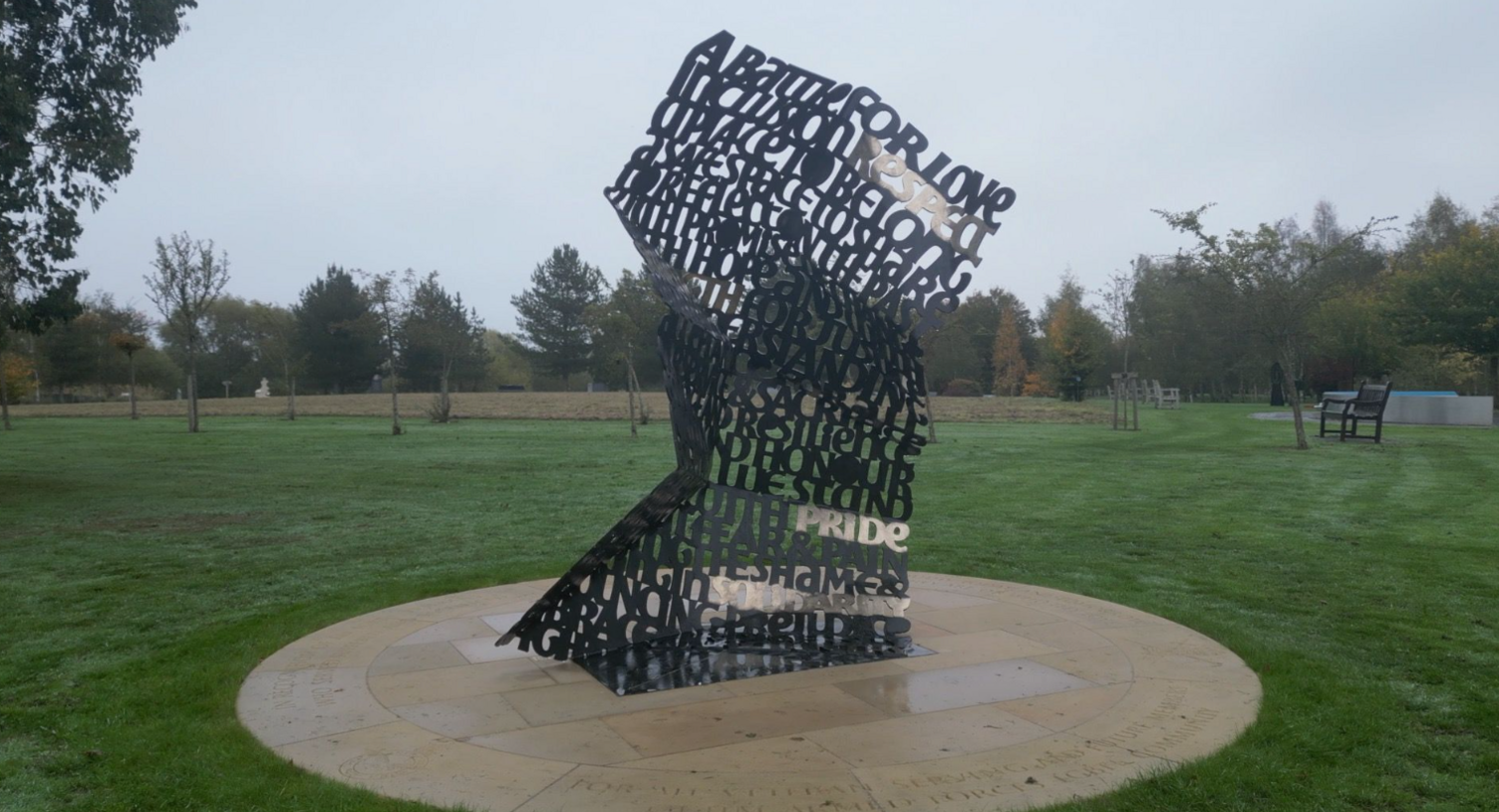
The bronze memorial takes pride of place in the UK's national remembrance site
Commander Woods came out to his senior Navy captain in 2003. He continued to serve until retiring in December last year.
"My captain turned out to be a real hero for me," he said.
"I'm used to operational stress on a ship but struggled with the emotional side [from a break up]. He astutely put it, saying 'operational stress is different from emotional stress'.
"I decided I need to grip this and bring people into my fold. I came out to people over the next year.
"Things have changed fundamentally in the Forces. It took a few years. One of the watershed moments I think was in 2006 - I was in charge of the military contingent for London Pride.
"We didn't know how it would go down with the crowds, if we'd get eggs and tomatoes thrown at us. But it was a resounding success, there was this massive roar from the crowd."
Booted Out by the Gay Ban
Until the year 2000, it was illegal to be gay in the British military. LGBT+ people in the forces faced intrusive interrogations and in some cases imprisonment. This is their story.
Follow BBC Sussex on Facebook, external, on X, external, and on Instagram, external. Send your story ideas to southeasttoday@bbc.co.uk , external or WhatsApp us on 08081 002250.
Related topics
Related stories
- Published27 October
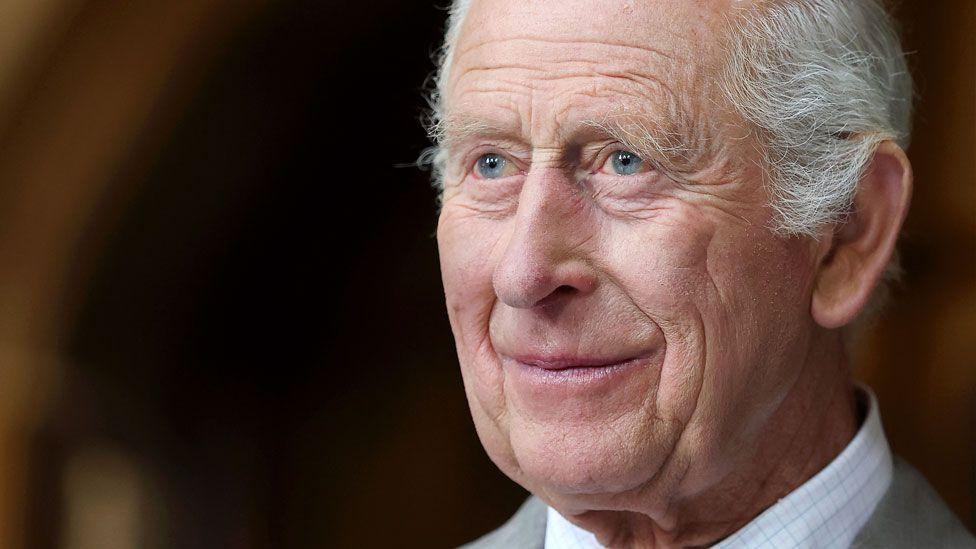
- Published7 June
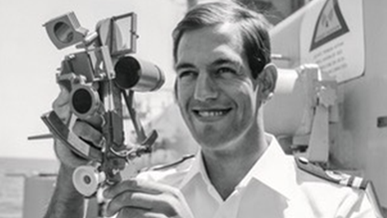
- Published10 September 2024
